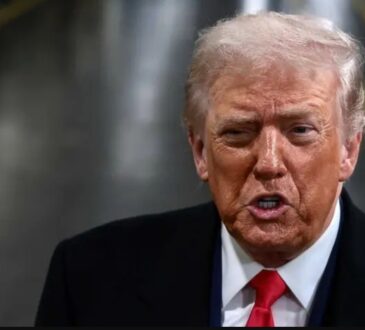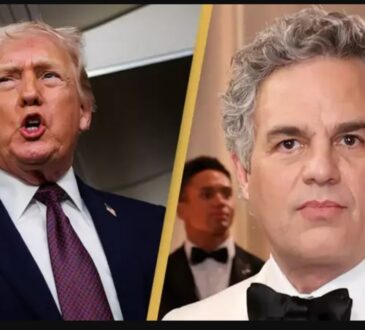
Donald Trump stood beside a podium while Pam Bondi gave a speech. Meanwhile, the Department of Justice seems to be completely in step with his leadership, following his lead without much pushback.
If you want thoughtful political analysis and commentary, there’s a daily newsletter called the Slatest you can sign up for.
At the end of last month, a fourth lawsuit connected to Donald Trump ended in another clear win for the law firm being targeted—just like the other three lawsuits before it. This wasn’t surprising.
Experts across the legal world believed from the beginning that Trump’s executive orders targeting major law firms like Perkins Coie, Jenner & Block, Susman Godfrey, and WilmerHale (where the writer once worked) would never survive in court.
Still, just three days after this latest defeat, Trump’s team decided to appeal the first lawsuit they lost—the one involving Perkins Coie. Experts once again believe the government will lose this appeal. So that leads to the obvious question: Why bother appealing at all?
The executive order against Perkins Coie isn’t subtle—it comes off as deeply personal and political. It attacks the firm’s work as dishonest and dangerous, and randomly brings up Hillary Clinton and George Soros, even though that has nothing to do with the legal reasoning.
More importantly, the order is clearly unconstitutional. It goes against multiple parts of the Constitution in ways that experienced lawyers can spot right away.
One of the biggest problems is with the First Amendment, which protects free speech. The government isn’t allowed to punish people for expressing political opinions or doing political work. Courts look at three things to see if this kind of punishment happened:
- Was there protected speech? (Yes—Perkins Coie represented Hillary Clinton and worked with donors in the 2016 election. That’s clearly protected.)
- Did the government retaliate? (Yes—being directly attacked by the president is more than enough to scare anyone into silence. Other firms also backed down after similar treatment.)
- Was the retaliation because of the protected speech? (Yes—there’s no other explanation offered. The administration didn’t even try to hide the fact that they were punishing the firm for its political work.)
Usually, that last part is tricky to prove because governments are careful to hide their true reasons. But not here. Trump’s team made no real effort to pretend there was any other reason for the order. The judge even pointed this out, saying the administration didn’t give any real justification for targeting Perkins beyond disagreeing with its political activity.
And that’s just one of several constitutional violations.
There was also a violation of the First Amendment’s protection of free association—basically, the right to choose who you work with or support—because the government tried to force contractors to reveal their ties to Perkins Coie. But the government didn’t even attempt to justify this intrusion.
The order violated the 14th Amendment too, which guarantees equal protection under the law. Perkins was treated much more harshly than similar firms, and there was no logical reason for the difference.
It also affected the Sixth Amendment rights of Perkins’ clients. The government stripped the firm of its security clearances, which made it harder for them to represent their clients. In fact, two government meetings were canceled right after the order was signed.
Then there were two separate violations of the Fifth Amendment, which protects due process rights. First, the executive order took away Perkins’ ability to engage with the government without any kind of fair process. Second, the order was written so vaguely that no one could even tell what behavior the government was punishing or why.
That adds up to six major constitutional violations—two under the First Amendment, one under the 14th, one under the Sixth, and two under the Fifth. Each one alone could make the order illegal. So the appeals court would have to disagree with every single one to say the government was in the right—which is extremely unlikely.
If you were working at Perkins, you probably wouldn’t be too worried about this appeal. It’s about as solid a legal win as you could hope for. So again, why appeal?
One possible reason: They know they’ll lose in court, but that’s not the point.
The Trump administration seems to use legal tools more like political weapons. They don’t seem too concerned with whether their actions are lawful or effective—they’re more interested in using these actions to make political statements. Even if they lose the case, they still get to talk about it and make it look like they’re “fighting back.” That keeps their base engaged and puts pressure on political opponents, especially lawyers who might want to represent them.
Another reason? The Supreme Court. Lately, the Supreme Court has often sided with the government in controversial cases. While it’s unlikely even this Court would support Trump’s executive order, it’s not impossible. Sometimes, new legal arguments pop up on appeal arguments that were never even mentioned in earlier stages of the case.
Or Trump might push things so far that a bad ruling starts to look more “reasonable” by comparison. And even if the Supreme Court eventually rejects the appeal, just the process itself could give the administration more time and attention to keep attacking its political enemies using legal means.
So the real reason they’re appealing a case they’re almost certain to lose? Because in other ways, they still win. They get headlines. They intimidate opponents. They drag the issue out. And they keep the spotlight on themselves.




